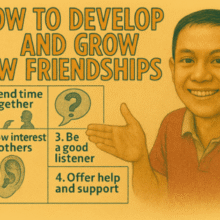The Difference in Reconciliation and Forgiveness
The Difference in Reconciliation and Forgiveness
The act of forgiveness doesn’t always lead to reconciliation and vice versa. One isn’t necessarily dependent on the other. You can forgive without having any thoughts about restoring a relationship, and you can reconcile and “agree to disagree” without forgiving the other person.
You may think that in certain cases (such as with a spouse) you can’t possibly forgive without letting the person back in your life. For example, if your best friend has an affair with your husband, you may let both relationships fall to the wayside.
On the other hand, you can forgive the people involved so that you can get on with your own life. The harm done to your relationship may negate any possibility of reconciliation. You may think of ways to have revenge on those involved in the hurt and pain they inflicted against you.
Actually, the best way to get revenge on another person is to live a great life. Forgiveness lets you overcome the negative and vengeful thoughts and bring clarity and positive thoughts into your life. You’ll be amazed at what you can accomplish once you push the negative out of your life.
 Like this poster? Click for more on Inspirational Posters. Also, click on a variety of Custom Products with this Inspirational Poster. |
Author, Lewis Smedes wrote the book, “Forgive and Forget,” about how non-forgiveness actually imprisons you and keeps you locked in a quicksand of hurt and pain. He writes, “To forgive is to set a prisoner free and discover the prisoner was you.”
How true Smedes’ statement is when you realize how locked in to your negative thoughts when you refuse to forgive and get on with your life. Holding a grudge isn’t only mentally impairing, but it also hurts you physically. Hurt and anger causes depression, anxiety and even such maladies as high blood pressure and heart problems.
Forgiveness doesn’t require you to interact with the other person involved. Reconciliation does require your involvement and means that you actively engage with the offender in all ways that have hurt or angered you.
The process of reconciliation means that you exchange a dialogue with the offender, express how you’ve been hurt and try to reestablish trust by moving past the hurt and anger and establish forgiveness.
One way to think about the difference between reconciliation and forgiveness is that reconciliation is accomplished by an outward process and forgiveness is given from inside with discipline and through a continuous process.
With forgiveness, apologies aren’t necessary, but they do help. Don’t expect participation from the offender when you choose to forgive. Give it freely and with love and acceptance in your heart.
Personal Development Ebook: |
| Why spend the rest of your life letting another person or deed control your every waking moment? Isn’t it time to take back your life, leave the disappointment and bitterness behind and be in complete control? Forgiveness is part of the plan.
This 28-page ebook will provide the information you need. Also includes a 4-page Checklist. Instantly downloadable. For personal use only. More details… |





